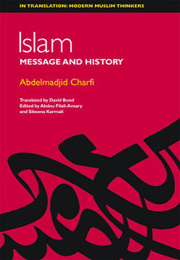Introduction
from Part Two - The Message in History
Published online by Cambridge University Press: 12 September 2012
Summary
People do not discover truth, they construct it, as they construct their history.
(P. Veyne)This part will not be concerned with the detail of historical events, despite the need for a critical examination of the history of the Muslim community after the death of the Prophet, during the time of the rightly-guided caliphs, and the subsequent Umayyad period (41/661–126/744). It was only towards the middle of the second/eighth century that the period after the death of the Prophet began to be documented. This documentation was incomplete and influenced by the partisan rivalries of the different factions involved. Some Muslims accepted the official version of events, others contested it, while yet others gave tacit approval. Underlying these events is a question which this part aims to answer: given the nature of the message of Muhammad, why did the first Muslims not put this message into practice? Why did the Companions, the Followers, and those who came after them adopt solutions which seem unsatisfactory, and even spurious?
The divergence between the aims of Muhammad's preaching and its historical form is not something that should cause surprise. This divergence is a feature of philosophical and religious movements. This is what happened in the case of Protestantism, which developed alongside modernity, leading to results which were far from conforming to the vision of the founding fathers of Protestantism, and in some cases, in contradiction to it. The same could be said of Marxism as applied in the former Soviet Union.
Information
- Type
- Chapter
- Information
- IslamBetween Message and History, pp. 87 - 88Publisher: Edinburgh University PressPrint publication year: 2009
